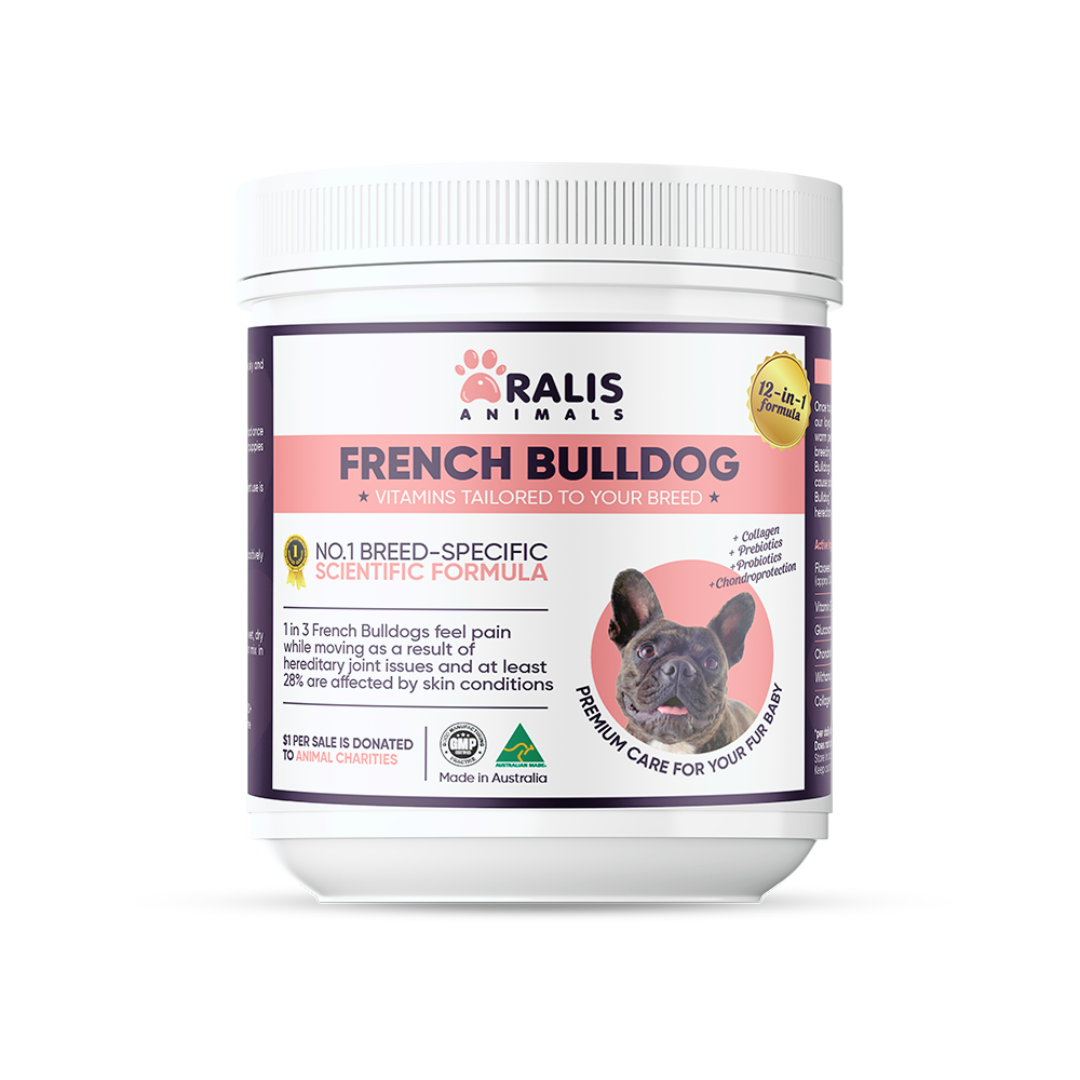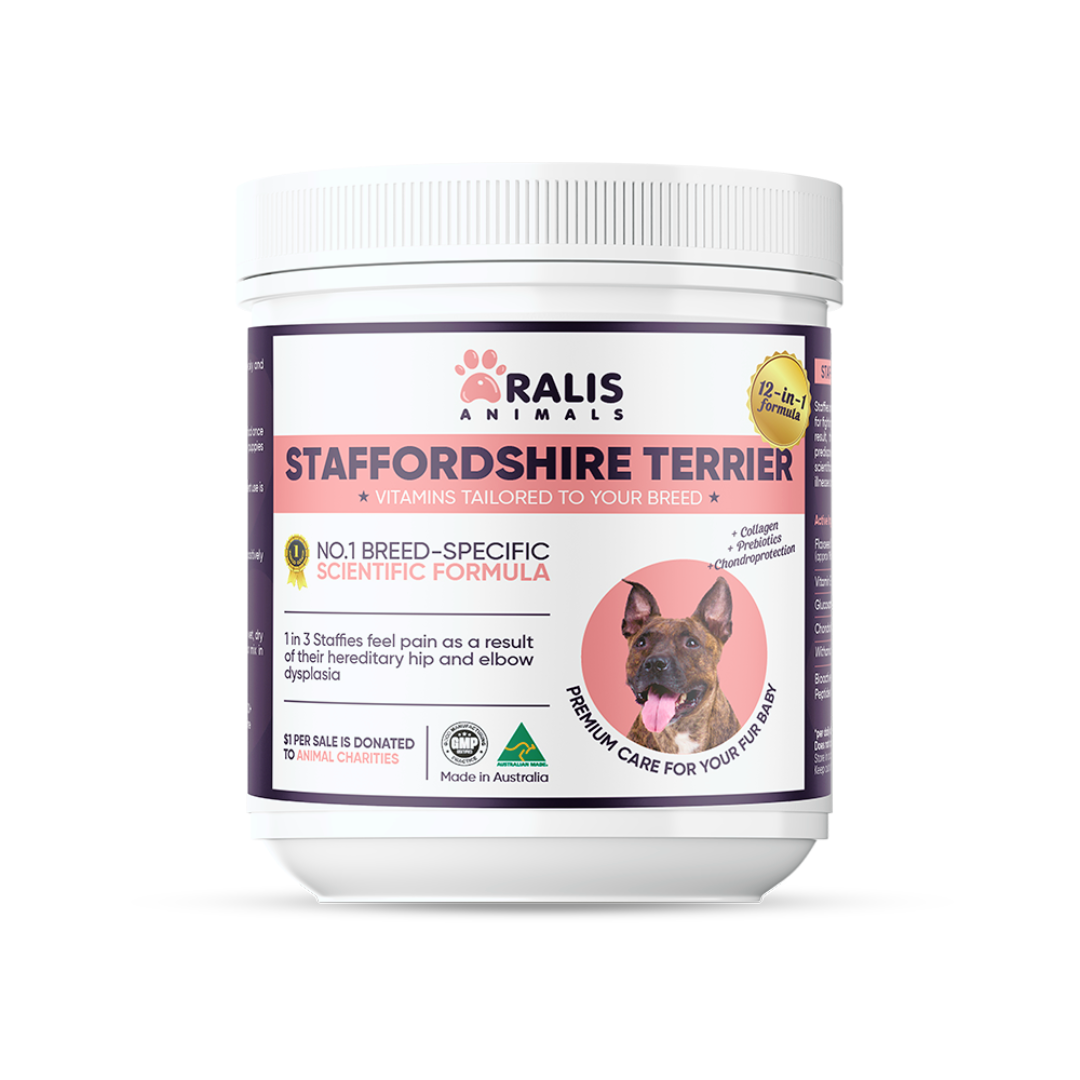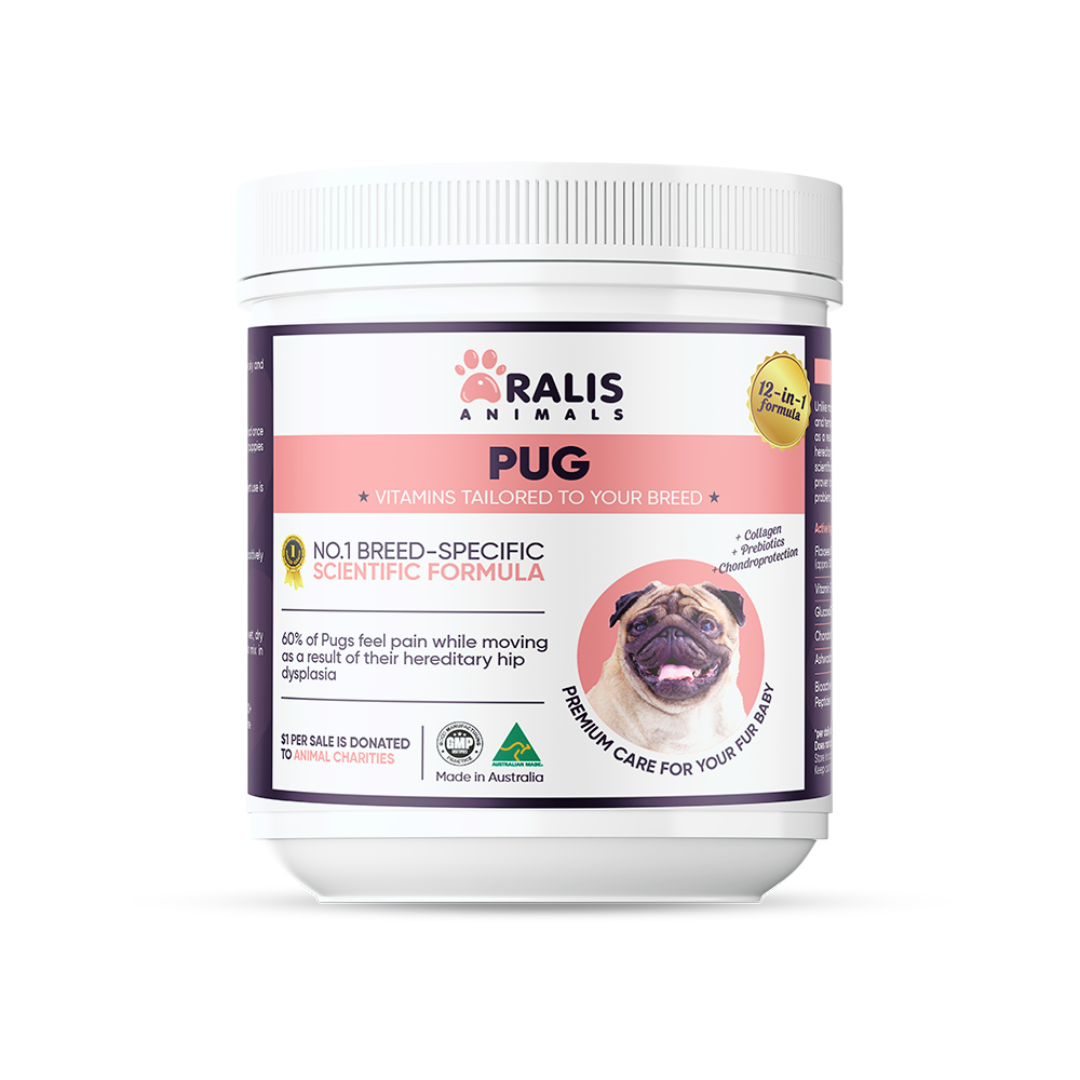How to Support Your Dog’s Gut Health Naturally with Prebiotics and Probiotics

As pet owners, we want nothing more than to see our furry companions thrive. One crucial aspect of their overall well-being is gut health, which plays a pivotal role in supporting their immune system, digestion, and even skin and coat condition. In this blog post, we'll explore the natural ways to support your dog's gut health using the dynamic duo of prebiotics and probiotics.
Understanding the Canine Gut Microbiome
The gut microbiome is a complex ecosystem of trillions of microorganisms, including bacteria, fungi, and viruses, that reside in your dog's digestive tract. This intricate network plays a vital role in various bodily functions, from nutrient absorption to immune system regulation.
When the gut microbiome is out of balance, it can lead to a host of issues, such as digestive problems, skin irritations, and even behavioral changes. Signs of poor gut health in dogs may include:
- Chronic diarrhea or constipation
- Excessive gas or bloating
- Skin conditions like hot spots or itchy skin
- Lack of energy or lethargy
- Changes in appetite or weight
Maintaining a healthy gut microbiome is essential for your dog's overall well-being, and that's where prebiotics and probiotics come into play. If your pup struggles with tummy upsets or itchy skin, it might be time to focus on gut health. Our Aralis Animals Multivitamins combines probiotics, prebiotics, and natural anti-inflammatories to help restore balance from the inside out.
Prebiotics: The Foundation of Gut Health
Prebiotics are a type of dietary fiber that act as food for the beneficial bacteria in your dog's gut. These non-digestible carbohydrates, such as chicory root, inulin, and fructooligosaccharides (FOS), help stimulate the growth and activity of the good bacteria, creating an environment that supports a thriving microbiome.
By incorporating natural prebiotic sources into your dog's diet, you can help establish a strong foundation for their gut health. Some excellent prebiotic-rich foods for dogs include:
- Bananas
- Apples
- Oats
- Barley
- Chicory root
- Beets
Supplementing your dog's diet with a high-quality prebiotic can also be a great way to ensure they're getting the necessary support for their gut health.
Probiotics: Balancing the Gut Microbiome
Probiotics are the live, beneficial bacteria and yeasts that can help restore the balance in your dog's gut microbiome. These microorganisms work to crowd out harmful bacteria, support nutrient absorption, and strengthen the immune system.
There are various probiotic strains that can be beneficial for dogs, including Lactobacillus, Bifidobacterium, and Enterococcus. Each strain has its own unique properties and can target different aspects of your dog's health, such as digestive function, skin health, or immune response.
When choosing a probiotic supplement for your dog, look for one that contains a diverse array of strains and meets the specific needs of your canine companion. The right probiotic can help alleviate issues like diarrhea, allergies, and even anxiety.
The Synergistic Power of Prebiotics and Probiotics
Prebiotics and probiotics work hand-in-hand to support your dog's gut health. Prebiotics provide the necessary fuel for the probiotics to thrive and multiply, creating a symbiotic relationship that optimizes the gut microbiome.
By incorporating both prebiotics and probiotics into your dog's diet, you can create a powerful synbiotic effect that can lead to a range of health benefits, including:
- Improved digestion and nutrient absorption
- Enhanced immune function
- Reduced inflammation and skin irritations
- Better energy levels and overall well-being
Natural Ways to Boost Your Dog's Gut Health
In addition to supplementing with prebiotics and probiotics, there are several natural ways to support your dog's gut health:
Dietary Recommendations
- Incorporate a variety of whole, fiber-rich foods like fruits, vegetables, and whole grains
- Avoid processed foods, sugary treats, and excessive amounts of red meat
- Ensure your dog is staying hydrated with plenty of fresh water
Supplement Strategies
- Look for probiotic supplements that contain a diverse array of strains
- Consider adding a prebiotic supplement or incorporating prebiotic-rich foods
- Discuss any supplements with your veterinarian to ensure they're safe and appropriate for your dog
Lifestyle Factors
- Manage stress levels through exercise, playtime, and positive reinforcement
- Maintain good oral hygiene to prevent the spread of harmful bacteria
- Limit the use of antibiotics and other medications that can disrupt the gut microbiome
Choosing the Right Probiotic Supplement for Your Dog
When selecting a probiotic supplement for your dog, look for products that meet the following criteria:
- Contains a diverse array of probiotic strains
- Includes clinically studied and proven strains
- Provides an appropriate dosage for your dog's size and age
- Is free from fillers, artificial ingredients, and potential allergens
It's also important to start with a lower dosage and gradually increase it to allow your dog's gut to adjust. Always consult with your veterinarian before introducing any new supplements to your dog's routine.
Conclusion
Maintaining a healthy gut is crucial for your dog's overall well-being. By incorporating prebiotics and probiotics into their diet, you can support a thriving gut microbiome and unlock a world of benefits for your furry friend. Remember, consistency is key when it comes to gut health, so make it a priority in your dog's care routine. With the right approach, you can help your canine companion thrive from the inside out.





